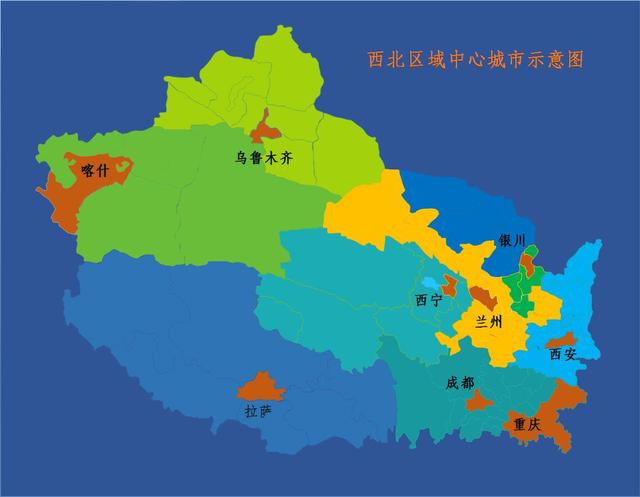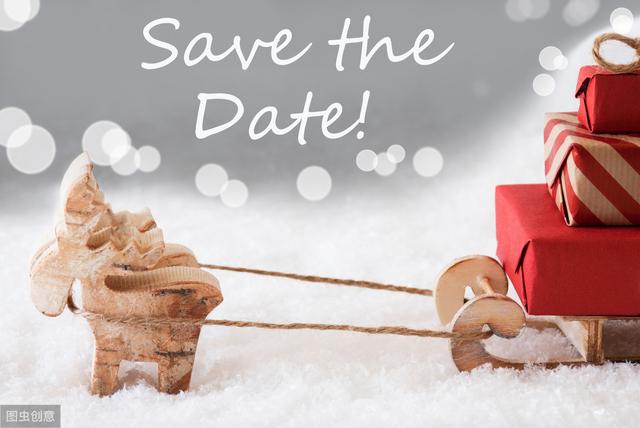want to know加什么时态(词汇拓展-KNOW)
Hello.,我来为大家讲解一下关于want to know加什么时态?跟着小编一起来看一看吧!

want to know加什么时态
Hello.
你好。
My name is Emma, and in today's video I am going to teach you about the difference between " know" and " meet" .
我的名字是艾玛,在今天的视频中,我将教你"知道"和"见面"之间的区别。
This is a very common mistake I hear many, many students making.
这是我听到很多很多学生犯的一个非常常见的错误。
I'm also going to teach you about the difference between " meet" , " meet with" , or " meet up with" .
我还将教你"见面","见面"或"见面"之间的区别。
And this, in case you're wondering, is the past tense of " meet" .
如果你想知道,这是"相遇"的过去时态。
So in this video we're going to talk about: " know" , " meet" , " meet up with" , and " meet with" , and: What are the differences between those different words?
因此,在本视频中,我们将讨论:"知道","见面","见面"和"见面",以及:这些不同单词之间有什么区别?
So let's get started.
让我们开始吧。
So I have here four sentences.
所以我在这里有四句话。
" I knew Chelsea last week." And " knew" is the past of " know" .
"我上周认识了切尔西。而"知道"就是"知道"的过去。
" I met Chelsea last week." " Met" is the past of " meet" .
"我上周遇到了切尔西。"相遇"是"相遇"的过去。
" I met with Chelsea last week." and: " I met up with Chelsea last week." Do you know what the difference between these sentences are?
"我上周会见了切尔西,"并且:"我上周会见了切尔西。你知道这些句子有什么区别吗?
Are there any ones that have a mistake in them or all these all good sentences?
有没有一个有问题的句子,或者所有这些好句子?
Okay, so take a moment and think about it.
好吧,所以花点时间想想。
So, let's first look at the difference between these two: " I knew Chelsea last week." and " I met Chelsea last week." So I have here some pictures.
所以,让我们先来看看这两者之间的区别:"我上周认识切尔西"和"我上周遇到了切尔西"。所以我这里有一些照片。
Pictures can really help you remember things, and they can really, you know, help make a point. . .
图片真的可以帮助你记住一些事情,而且它们真的可以帮助你表达一个观点......
A stronger point.
一个更有力的观点。
So, let's get started over here.
所以,让我们从这里开始。
We have " meet" , which is now and the past, which is " met" .
我们有"相遇",这是现在和过去,这是"相遇"。
I have here two people.
我这里有两个人。
These people do not know each other.
这些人彼此不认识。
It's the first time that they are talking.
这是他们第一次交谈。They don't know each other.
他们彼此不认识。
So what do they say?
那他们怎么说呢?
They say: " Nice to meet you! " We use " meet" when we're meeting somebody for the first time.
他们说:"很高兴见到你!当我们第一次见到某人时,我们使用"见面"。
We use " meet" with strangers.
我们使用与陌生人"见面"。
So these guys, they don't know each other and now they are meeting for the first time.
所以这些家伙,他们彼此不认识,现在他们第一次见面。
Okay, so these two, we could say: " They met last week." Meaning: The first time they shook hands: " Hi. Nice to meet you." was last week.
好吧,所以这两个人,我们可以说:"他们上周见过面。意思: 他们第一次握手:"嗨。很高兴见到你。
Now, compare this to " know" or " knew" , which again, is the past tense.
现在,将其与"知道"或"知道"进行比较,这又是过去时。
We have here two friends.
我们这里有两个朋友。
We can call them David and Ken.
我们可以称他们为大卫和肯。
They're friends forever.
他们是永远的朋友。
They've been friends for a very long time.
他们成为朋友已经很久了。
In this case they know each other.
在这种情况下,他们彼此认识。
They have history.
他们有历史。
It's not they're meeting for the first time.
这不是他们第一次见面。
No.
不。
They met a long time ago.
他们很久以前就认识了。
So if there's history between two people, they know each other.
因此,如果两个人之间有历史,他们就彼此认识。
If there is no history between two people and, you know, it's their first time shaking hands, saying: " Nice to meet you" , they meet each other.
如果两个人之间没有历史,你知道,这是他们第一次握手,说:"很高兴见到你",他们就会相遇。
So this one we would never say. . .
所以这个我们永远不会说...
This is a mistake I hear a lot.
这是我经常听到的错误。
A lot of people say: " Oh. It's nice to know you." We don't say that.
很多人说:"哦。很高兴认识你。我们不会这么说。
Because " know" means you met the person a long time ago and you've. . .
因为"知道"意味着你很久以前就认识了这个人,你已经......
You know, you have a history together.
你知道,你们在一起有一段历史。
For this, this is the first time, we would use " meet" not " know" .
为此,这是第一次,我们会用"见面"而不是"知道"。
So another thing I wanted to say on this is a lot of the times you want to. . .
所以我想说的另一件事是很多时候你想......
You know, you want to talk about how long has somebody been friends with somebody or how long has somebody had this person for their teacher.
你知道,你想谈谈某人和某人成为朋友多久了,或者有人为他们的老师做了多长时间。
So the. . .
所以...
What we usually use is the present perfect, so we often say how long we've known someone.
我们通常使用的是现在的完美,所以我们经常说我们认识某人多久了。
So " known" is the past participle of " know" .
所以"已知"是"知道"的过去分词。
So what you can say if somebody says: -" Oh. How long have you known your husband for? " -" I've known my husband for 10 years." -" How long has Dave known Ken for? " -" Dave has known Ken for five years." Okay?
所以如果有人说:"哦。你认识你丈夫多久了?"-"我认识我丈夫10年了"-"戴夫认识肯多久了?"——"戴夫认识肯已经五年了。好?
So, again, this is asking about: How long is your history?
所以,再一次,这是在问:你的历史有多长?
How long have you known each other for?
你们认识多久了?
Again, this is key English.
同样,这是关键的英语。
It comes up a lot in conversation.
它在谈话中经常出现。
When you meet somebody, you know, and there's like a couple, you often say: " Oh. How long have you known Bob for? How long have you known Jennifer for? " Okay?
当你遇到某人时,你知道,就像一对夫妇一样,你经常说:"哦。你认识鲍勃多久了?你认识詹妮弗多久了?"好吗?
So now let's look at some of the differences with " met" , or, sorry.
所以现在让我们来看看与"met"的一些差异,或者,对不起。
" Meet" , " meet with" , and " meet up with" .
"见面","见面"和"见面"。
Okay, so quick question to you.
好的,快速提问给你。
We've just gone over the difference between " know" and " met" .
我们刚刚回顾了"知道"和"相遇"之间的区别。
For these two: " I knew Chelsea last week." , " I met Chelsea last week." which one do you think is correct?
对于这两个:"我上周认识切尔西","我上周遇到了切尔西",你认为哪一个是正确的?
Well, if you said number two: " I met Chelsea last week." that's right.
好吧,如果你说第二点:"我上周遇到了切尔西。。
" I met Chelsea last week." This one is correct, because usually you know somebody for a long time and we usually don't use " knew" because it makes it sound like the person has died or that you don't know them anymore.
"我上周遇到了切尔西。这个是正确的,因为通常你认识某人很长一段时间,我们通常不使用"知道",因为它听起来像这个人已经死了,或者你不再认识他们了。
So we usually use " know" or we use " have known" .
所以我们通常使用"知道"或我们用"已经知道"。
We don't use " knew" a lot.
我们经常使用"知道"。
So, what you could say is: " I have known Chelsea since last week." But if you're talking about, like, meeting first time, we would use " met" .
所以,你可以说的是:"我从上周开始就认识了切尔西。但是,如果您谈论的是,例如,第一次见面,我们会使用"met"。
" I met Chelsea last week." Means: -" Nice to meet you, Chelsea." -" Nice to meet you, too." Okay?
"我上周遇到了切尔西。意思是:-"很高兴见到你,切尔西。好?
So in general what you're looking for is " met" for a first time meeting.
因此,一般来说,您正在寻找的是第一次见面的"相遇"。
Now let's look at these other sentences and how we use them.
现在让我们来看看这些其他句子以及我们如何使用它们。
Okay, so we've talked about " know" meaning you have a history with somebody, and we talked about " meet" meaning for the first time.
好吧,我们已经谈到了"知道"意味着你与某人有历史,我们第一次谈到了"见面"的含义。
Now, what's the difference between: " meet" , " meet with" , and " meet up with" ?
现在,"见面","见面"和"见面"有什么区别?
Let's look at that now.
现在让我们来看看。
So, I told you before " meet" has to do with strangers meeting for the first time, or maybe they met a couple times but they don't know each other well.
所以,我之前告诉过你,"见面"与陌生人第一次见面有关,或者也许他们见过几次,但他们彼此并不了解。
Each time they see each other: " Oh. It's nice to meet you." So, for example. . .
每次他们见面时:"哦。很高兴见到你。因此,例如...
This isn't true, but just for this example: " I met Taylor Swift twice." This means Taylor Swift has no idea who I am.
这不是真的,但只是为了这个例子:"我见过泰勒·斯威夫特两次。这意味着泰勒·斯威夫特不知道我是谁。
Or maybe, you know, just at that meeting we say: -" Hi. Nice to meet you. My name's Emma. What's your name? " -" Oh, I'm Taylor Swift." And then we see each other maybe a couple years later: " Oh. It's nice to meet you again." But we don't know each other.
或者,你知道,就在那次会议上,我们说:"嗨。见到你很高兴。我的名字是艾玛。你叫什么名字?"-"哦,我是泰勒·斯威夫特。然后我们也许几年后见面了:"哦。很高兴再次见到你。但我们彼此不认识。
We don't have history together.
我们没有共同的历史。
We've only met two times.
我们只见过两次面。
Now, compare this to: " meet with" .
现在,将其与"见面"进行比较。
" Meet with" is when we're talking about usually a business situation or some sort of formal situation where we're talking about some sort of serious matter.
"见面"是指我们谈论的通常是商业情况或某种正式情况,我们正在谈论某种严重问题。
So, for example: " I met with my professor today." Or: " Tomorrow I will meet with my boss to talk about our company." , " Today I had a job interview. I met with some people about the job." So we're usually talking about formal situations when we use " meet with" , or again, this is the past: " met with" .
例如:"我今天会见了我的教授。"或者:"明天我会和我的老板见面,谈谈我们的公司。我遇到了一些关于这份工作的人。因此,当我们使用"见面"时,我们通常谈论的是正式情况,或者再次,这是过去:"见面"。
So notice there is no " with" here, because it's the first time.
所以请注意,这里没有"与",因为这是第一次。
Here, there is " with" , and it just indicates a formal meeting.
这里,有"与",它只是表示正式会议。
And for this one, you know, it doesn't have to be the first time.
对于这个,你知道,它不一定是第一次。
Maybe you've met with your boss a hundred times before, so it can. . .
也许你以前和你的老板见过一百次面,所以可以......
It has a different meaning than this.
它具有与此不同的含义。
Okay, the next one: " meet up with" .
好的,下一个:"见面"。
So, " meet up with" is another way to say hang out or do something social with people.
因此,"见面"是另一种说出去玩或与人交往的方式。
It's fun or it should be fun.
这很有趣,或者应该很有趣。
So usually it's with friends, it can be with other people, too.
所以通常和朋友在一起,也可以和其他人在一起。
But when you meet up with somebody it's not a business meeting, it's not formal.
但是,当你与某人见面时,这不是商务会议,也不是正式的。
It's you're meeting for fun.
你们开会是为了好玩。
So, for example: " I met up with my friends tonight." So, this is why people get really confused by these things because when we just have " meet" with no prepositions after, it indicates a first or second meeting where you don't know the person.
例如:"我今晚和我的朋友见了面。所以,这就是为什么人们对这些事情感到非常困惑,因为当我们只有"见面"而没有介词时,它表明你不认识这个人的第一次或第二次会面。
For " meet with" it indicates some sort of formal situation, whereas " meet up with" is about a fun situation.
对于"见面"来说,它表示某种正式的情况,而"见面"则是关于一个有趣的情况。
It's pretty much saying: " I'm hanging out with somebody. I met up with my friends tonight. I'm hanging out with my friends tonight." Okay?
这几乎是在说:"我和某人一起出去玩。今晚我和我的朋友见了面。我今晚要和朋友们出去玩。好?
So, we've covered a lot in this video.
因此,我们在此视频中介绍了很多内容。
We've covered the difference between " know" and " met" .
我们已经介绍了"知道"和"相遇"之间的区别。
Remember " know" is you have a history with someone, " meet" is, you know, you're pretty much strangers.
记住"知道"是你和某人有历史,"见面"是,你知道,你几乎是陌生人。
We covered " meet" versus " meet with" versus " meet up with" .
我们涵盖了"见面"与"会面"与"见面"。
So this is a lot of different concepts and different vocabulary to remember.
所以这是很多不同的概念和不同的词汇要记住。
So what I would like you to do is come check out our website at www. engvid. com, and there you can take a quiz to really practice the differences between these four different words and phrasal verbs.
因此,我希望您做的是查看我们的网站 www.engvid.com,在那里您可以进行测验,以真正练习这四个不同单词和短语动词之间的差异。
So I invite you to come check out that website.
所以我邀请你来看看那个网站。
You can also subscribe to my channel.
您也可以订阅我的频道。
I have a lot of different resources there on grammar, vocabulary, IELTS, TOEFL, pronunciation, speaking, all sorts of different things.
我在语法,词汇,雅思,托福,发音,口语,各种不同的事情上有很多不同的资源。
And we also have a lot of great resources on engVid as well.
我们也有很多关于engVid的优秀资源。
So I hope you check it out.
所以我希望你看看它。
Until next time, thank you for watching and take care.
直到下次,感谢您的观看和保重。
,免责声明:本文仅代表文章作者的个人观点,与本站无关。其原创性、真实性以及文中陈述文字和内容未经本站证实,对本文以及其中全部或者部分内容文字的真实性、完整性和原创性本站不作任何保证或承诺,请读者仅作参考,并自行核实相关内容。文章投诉邮箱:anhduc.ph@yahoo.com






